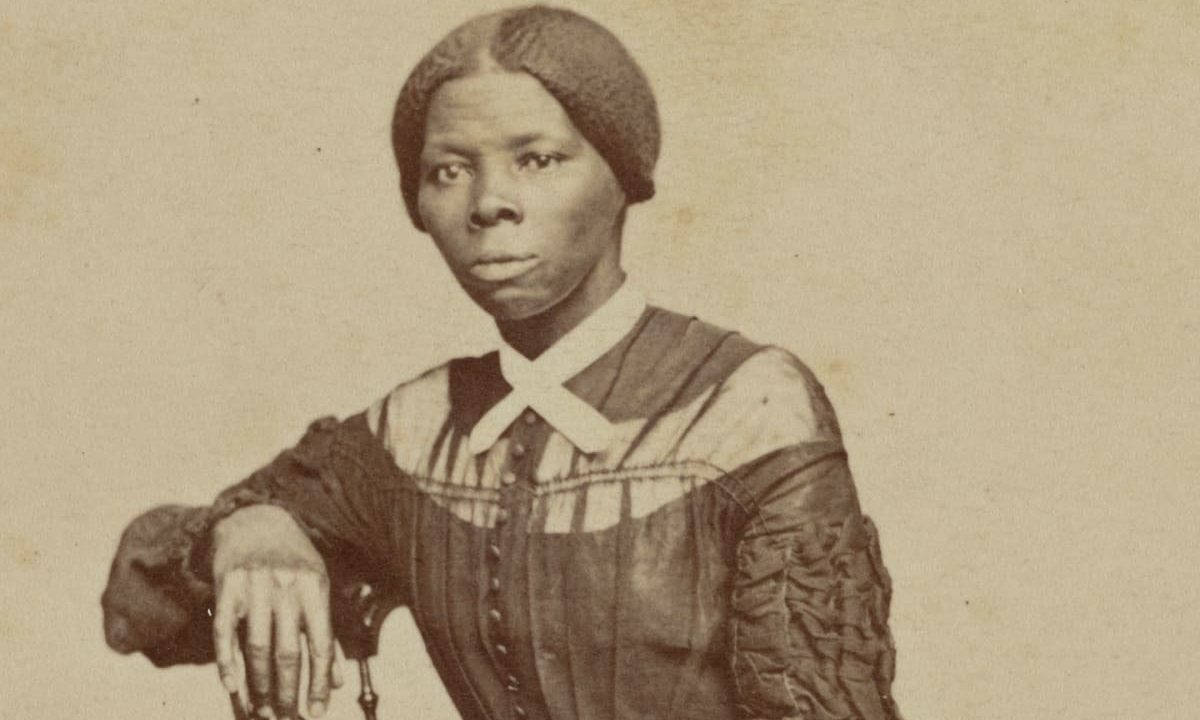

Harriet Tubman, a Black woman widely credited as the first female leader of a combat regiment during the Civil War, was posthumously commissioned as a brigadier general of the Maryland National Guard at a Veteran’s Day ceremony.
A Maryland native, Tubman is best known for leading hundreds of slaves to freedom through the Underground Railroad but worked as a Union spy during the Civil War and led a raid in South Carolina that eventually freed 700.
The commissioning ceremony in Annapolis, Maryland involved generations of Tubman’s descendants including Ernestine “Tina” Martin Wyatt, Tubman’s great-great-great-grandniece. Wyatt received the official proclamation on Tubman’s behalf from Maryland Gov. Wes Moore, an Army veteran.
“Harriet Tubman lived the values and virtues that I was taught when I served in the United States Army, and many of the people here today learned too: Live mission first, people always, lead with honor, integrity, duty, and courage. Leave no one behind,” Moore said at the ceremony. “She fought for a kind of unity that can only be earned through danger, risk, and sacrifice. And it is a unity we still benefit from to this day.”
Tubman is widely celebrated for leading hundreds of slaves to freedom on the Underground Railroad. But as the Civil War loomed, Tubman was recruited by the governor of Massachusetts in 1861 to become a spy for the Union Army, gathering intelligence from behind Confederate lines.
During her clandestine service, Tubman dressed as a field hand, led scouting and spying missions to identify Southern map mines, supply areas, and soldiers. She was given service documents enabling her to travel on all Union transportation without charge. She also received Union cash for secret missions like hiring and recruiting black spies to gather intelligence for broader Union operational planning, according to the Army.
Subscribe to Task & Purpose today. Get the latest military news and culture in your inbox daily.
In June 1863, Tubman along with Union Col. James Montgomery led a raid at Combahee Ferry, South Carolina using intelligence she had gathered to avoid mines in the Combahee River. The operation led to the rescue of more than 700 slaves from Southern plantations.
She was inducted into the Military Intelligence Corps’ Hall of Fame in June 2021.
Tubman also worked as a nurse for the Union in Washington D.C. and Beaufort, South Carolina. She also traveled to Florida to treat and cure soldiers suffering from dysentery, an intestinal infection and one of the leading causes of death during the war, with natural herbs. In 1865, the Army’s 12th surgeon general Joseph Barnes appointed Tubman as nurse matron at Fort Monroe’s Colored Hospital in Hampton, Virginia.
After the war ended, Tubman’s military service went unnoticed by the larger U.S. government but was recognized among abolitionists like John Brown who nicknamed her “General” Tubman, according to the Army. She worked to get recognition for her service and filed a $1,800 claim in New York, citing her service during the war under the direction of War Department Secretary Edwin M. Stanton. Her claim was denied. During that time, Congress received letters of support and documents verifying her military work, leading to a bill that was signed into law in 1899 which authorized Tubman’s nurse pension of $20 per month.
“Harriet Tubman’s military service was defined by her bravery, wit, and dedication to doing what is right and it truly stands as an example for all veterans to emulate,” said Maryland Adjutant General Janeen Birckhead, the only Black woman in charge of a state military. “I am so proud that her legacy will officially be tied to the Maryland National Guard, as she was born here, lived here, and served here just like our soldiers and airmen.”
The latest on Task & Purpose
- Marine recruit flees boot camp, stopped at airport
- Navy fires commander of San Diego Leadership and Ethics Command
- Air Force fires commander at Montana nuclear missile base after investigation
- DoD can’t confirm whether North Korean troops in Russia are ‘gorging on pornography’
- An enemy commander told him to surrender. This Army captain threw a grenade instead.
